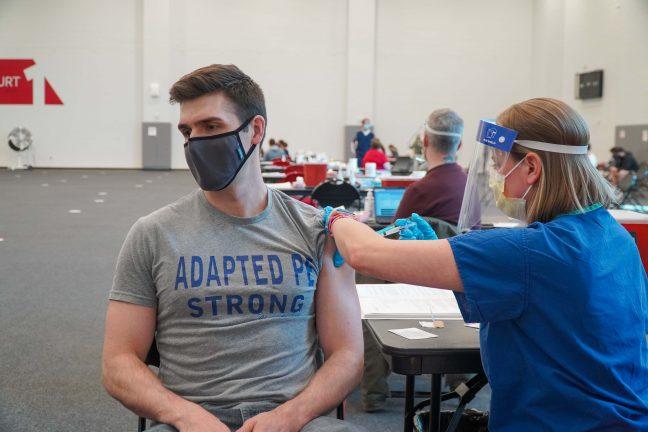The start of the semester brings game days, late nights in College Library and flu season. Starting Sept. 13, University Health Services is offering flu shots to students and employees at various locations around campus.
The vaccine will be available through Dec. 8. UHS communications manager Kelsey Anderson said in an email statement that flu shot scheduling can be done online or when you arrive at the flu shot clinic.
“Getting your flu shot is a great way to keep not only yourself but the whole campus feeling well,” Anderson said. “One of the best ways to avoid illness and keep those around you healthy is to get a flu shot.”
In an email to The Badger Herald, virology professor Thomas Friedrich said it can be difficult to predict when flu cases will spike, especially after the COVID-19 pandemic. Pre-COVID-19, the influenza virus usually peaked in late December and February. But last year, some college campus outbreaks happened in the fall.
Evidence suggests immunity from the vaccine can decrease relatively quickly. While the best option is to get the vaccine shortly before flu cases peak, Friedrich said it’s difficult to determine when this will happen.
“What this boils down to for me is that it is better to get a flu shot than not get one,” Friedrich said in an email. “If you want to wait until later in the fall, that is okay. But it is also okay to get a shot now.”
Anderson recommended students get vaccinated early in the fall semester since it takes two weeks after vaccination for the body to develop antibodies and provide protection against the influenza virus.
Students with chronic health conditions such as asthma, diabetes or immune disorders are considered high risk. Anderson said a highly vaccinated campus population will help protect other classmates, roommates and friends.
It’s difficult to predict the severity of the flu season, but Friedrich said reports of severe influenza seasons in the southern hemisphere could indicate a bad flu season here. Other factors, such as the number of vaccinated people and how well the vaccine matches the viruses that end up circulating, also affect flu season severity, Friedrich said.
“How well people stick to “non-pharmaceutical interventions” is also really important. These are things like staying home when sick, wearing a face covering in public (especially if they have symptoms of respiratory infection), washing hands and so forth,” Friedrich said in an email. “We are familiar with these measures now from COVID, and they work to stop the spread of influenza too.”
Last year more than 20,000 University of Wisconsin students got their flu shot, Anderson said, with UW regularly being one of the most highly vaccinated college campuses in the U.S. Flu shots are of no cost to all UW students.


